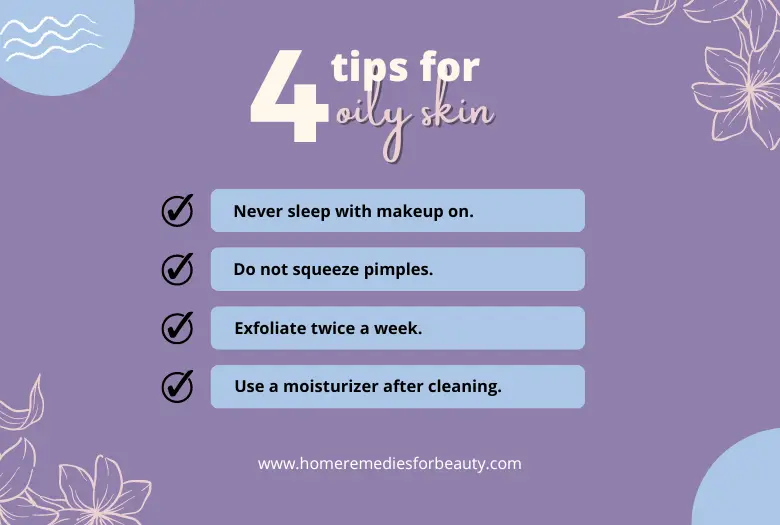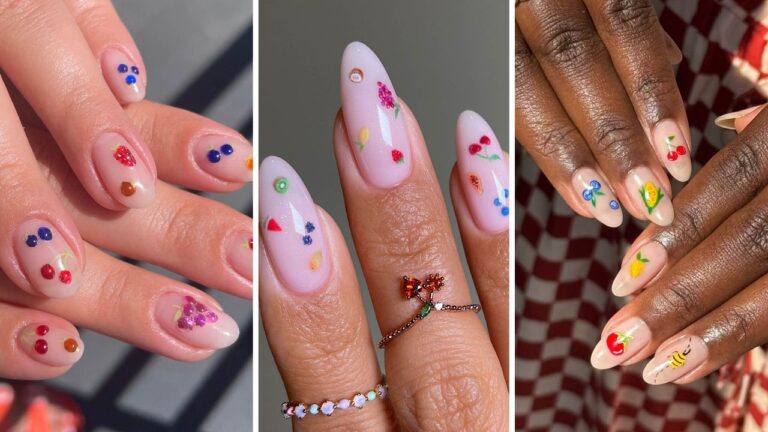Are you tired of persistent acne and blemishes? I understand. I struggled with them as a teenager too. I remember feeling ashamed of my appearance and trying countless products and home remedies to clear up my skin.
Age spots can make your skin look uneven, even when you apply makeup, and they can be a source of stress. But there’s hope! Aloe vera may be just the solution you need. Aloe vera is packed with vitamins, enzymes, and antioxidants that help soothe inflammation, fight bacteria, and promote healthy skin.
So, can aloe vera also get rid of acne and blemishes? In this guide, we explain how aloe vera works, what its benefits are, and share five effective DIY remedies. Let’s get started!
What is Aloe Vera and where does it come from?
Aloe vera is a succulent plant. The word “aloe” comes from the Arabic word “alloeh” (bitter, shiny substance) and “vera” comes from the Latin word “verus” (truth).
Known for its thick, fleshy leaves filled with a clear gel, Aloe Vera is native to North Africa, Southern Europe and the Canary Islands, but is now cultivated around the world for its healing properties.
This gel contains vitamins, enzymes, minerals and amino acids that have a beneficial effect on the skin, reducing inflammation and speeding up healing.
What causes acne and blackheads?
Acne is a common problem, especially among young people. Causes of acne include:
Excessive sebum production, clogged pores, bacteria, hormonal changes, improper skin care
For example, too much oil on the skin can mix with dead cells and clog pores, causing acne, which, while not harmful, can cause anxiety and depression.
However, age spots and hyperpigmentation are often caused by acne scars, sun damage, and aging skin, and appear as darker spots in areas where acne or other skin problems have healed.
5 Amazing Benefits of Aloe Vera for Acne and Dark Spots
Aloe vera is a top skin care ingredient with soothing and healing properties. There are many uses for aloe vera, but in this section we will cover the most common ones.
1. Soothes redness and inflammation
Aloe vera is a wonderful plant that is loved by many for its soothing and refreshing properties. If you have ever felt the discomfort of acne, try aloe vera. It helps to reduce redness, calm irritated skin, and relieve irritated areas.
2. Fights off bacteria
Acne occurs when bacteria gets stuck in your pores. Luckily, aloe vera has natural antibacterial properties that help keep your skin clean and healthy. Using aloe vera can help reduce the chances of new acne breaking out, so you can enjoy cleaner skin.
3. Lighten dark spots
Acne and sun spots can be a nuisance, but fear not: Aloe vera contains a natural compound called aloin that may help fade dark spots over time. With regular use, your skin may look more even and brighter.
4. It speeds up healing
Studies have shown that aloe vera can heal wounds and treat skin problems. Aloe vera is rich in vitamins C and E, which help speed up healing. If you have acne scars or blemishes, aloe vera can help the skin heal and fade the scars faster.
5. Moisturizes skin without being sticky
Aloe vera moisturizes without making skin oily, making it great for acne-prone skin as it won’t clog pores while still hydrating.
How to Use Aloe Vera for Acne and Blackheads: 5 Easy Home Remedies
Now that you know how aloe vera benefits your skin, let’s take a look at some easy ways to use aloe vera: These methods will show you how to use aloe vera to fight acne and blemishes: Here are 5 effective DIY remedies you can try.
1. Aloe vera gel extracted directly from the leaves
Using aloe vera gel directly from the leaf is a pure way to benefit from its healing properties. This method is simple and allows you to use fresh aloe vera without any additives.
Materials needed:
Instructions:
Cut a fresh aloe vera leaf from the plant and peel off the outer layer to release the gel inside. Use a spoon to scoop out the gel and apply it directly to the affected area. Leave it on overnight and wash it off in the morning.
frequency:
Apply once daily or as needed.
advantage:
Reduces inflammation and redness. Helps heal acne and fade dark spots.
2. Aloe vera and honey mask
A soothing, antibacterial mask made with aloe vera and honey to soothe irritated skin and promote healing.
Materials needed:
1 tablespoon aloe vera gel. 1 tablespoon honey.
Instructions:
Mix the aloe vera gel and honey thoroughly in a bowl. Then, apply it on your face, focusing on the areas with acne or blackheads. Leave it on for 15-20 minutes and then wash it off with lukewarm water.
frequency:
advantage:
It moisturizes and heals the skin, and honey also has antibacterial and moisturizing properties.
3. Aloe vera and lemon juice treatment
Lemon juice helps to fade dark spots, and when mixed with aloe vera, it makes an effective remedy for uneven skin tone.
Materials needed:
1 tablespoon aloe vera gel 1 tablespoon lemon juice
Instructions:
Mix aloe vera gel and lemon juice in a small bowl. Apply the mixture to the blemishes or acne. Leave it on for 10-15 minutes and then rinse with cold water.
frequency:
Lemon juice can make your skin more sensitive to the sun, so apply it every other day.
advantage:
It fades dark spots and reduces pigmentation. Aloe vera soothes the skin and prevents irritation caused by lemon juice.
4. Aloe vera and turmeric paste
An aloe vera and turmeric face mask reduces inflammation and brightens the skin. Combined, they can help prevent acne and fade dark spots.
Materials needed:
1 tablespoon aloe vera gel, 1/2 teaspoon turmeric powder
Instructions:
Mix aloe vera gel and turmeric powder to make a paste. Then, apply the paste on the affected area, avoiding the sensitive area around the eyes. Leave it on for 10 to 15 minutes and rinse thoroughly.
frequency:
Can be used 2-3 times a week.
advantage:
Reduces inflammation and lightens dark spots. Turmeric helps calm acne and improve skin tone.
5. Aloe Vera with Tea Tree Oil
Tea tree oil has antibacterial properties and when combined with aloe vera it is effective in treating acne and blackheads. This combination fights bacteria and reduces acne.
Materials needed:
1 tablespoon aloe vera gel, 2-3 drops of tea tree oil
Instructions:
Mix aloe vera gel and tea tree oil in a small bowl. Use a cotton swab to apply the mixture directly onto the acne or blackheads. Leave it on for 10-15 minutes and then wash it off with lukewarm water.
frequency:
It can be applied once a day at night.
advantage:
Tea tree oil has antibacterial properties that help reduce acne-causing bacteria, while aloe vera soothes and moisturizes the skin, balancing the effects of the tea tree oil.
These simple home remedies can help you get rid of acne and fade dark spots. However, use these remedies safely without causing any harm. Also, it is important to know about the possible side effects. Let us take a closer look.
Side effects of using aloe vera on the skin
Aloe vera is safe for most people. However, it can cause irritation or allergies in some people, so it’s important to be aware of potential side effects. Here are some key things to watch out for:
1. Skin irritation
Aloe vera may be irritating to the skin, especially in those with sensitive skin, and may cause redness, itching, or the development of hives. If any of these symptoms occur, discontinue use and consult a physician.
2. Stomach problems
Consuming the milky juice of aloe vera, the yellow part of the leaf, can cause stomach upset. It can cause pain, nausea, and diarrhea. In some cases, it can harm the kidneys and cause mineral imbalances.
3. Cancer risk
Aloe latex contains harmful chemicals that may increase the risk of cancer, so avoid consuming it in large quantities.
4. Electrolyte Imbalance
Taking large amounts of aloe latex can destroy minerals in the body, which can result in fatigue, irregular heartbeat, and muscle cramps.
5. Potential toxic effects
Recent studies have shown that aloe vera (including gel and latex) can be harmful. If used incorrectly, it can damage cells and affect DNA. It is therefore important to use aloe vera products with caution and be aware of these risks.
Knowing these side effects can help you use aloe vera safely.
Tips for using aloe vera safely
These tips will help you use aloe vera safely and get the best results without any unwanted side effects.
Do a patch test: Before using aloe vera on your skin, apply a small amount to a small patch to check for any reaction. Use in moderation: Use aloe vera gel on the skin and avoid ingesting the aloe latex. Avoid sun exposure after application: If you use aloe vera with lemon juice, apply sunscreen before going outside. Store properly: Store aloe vera gel in a cool, dark place to maintain its effectiveness.

When to see a dermatologist
If you have any health problems or are pregnant, consult your doctor before using aloe vera. Also, consult a dermatologist if you have any of the following conditions:
Severe skin reactions Persistent irritation Allergic reactions Worsening symptoms Signs of infection
In these cases it is important to seek specialist medical advice.
Conclusion
So can aloe vera help get rid of acne and dark spots? Absolutely! Aloe vera can help soothe irritated skin, reduce redness, and fade dark spots over time. Plus, it keeps your skin moisturized without making it oily.
However, use with caution. Do a patch test first to see if you have a reaction. If you experience severe irritation or other problems, consult a dermatologist. Aloe vera is great for skin care. With continued use and careful care of your skin, it can look and feel better. Give it a try!
FAQ
Q. Does aloe vera cure acne?
Alera helps to clear up acne by reducing acne bacteria and reducing inflammation and redness. It’s not a miracle cure though, and consistent use is key to getting the best results.
Q. Is it okay to apply aloe vera to my face every day?
Yes, you can use it every day, especially for sensitive or acne-prone skin. It gently moisturizes without adding oils. However, please do a patch test first to ensure there are no allergies or reactions.
Q. Can aloe vera make acne go away overnight?
Aloe vera can reduce the appearance of acne overnight, but it won’t eliminate it completely. Its anti-inflammatory properties help reduce redness and swelling, but it will take time to see significant improvement.
Q. How long does it take for aloe vera to clear up acne and blemishes?
Depending on your skin type, the depth of your acne or blemishes, and how often you use aloe vera, it may take anywhere from a few weeks to a few months to see results, so patience and consistency are key.
Medical Disclaimer
This article is for educational purposes only and is not medical advice. We aim to provide you with accurate information. However, it is imperative that you consult with a qualified medical professional before starting or modifying any treatment.
source:
For more information and research on aloe vera, check out the resources below:
Image courtesy: freepik





